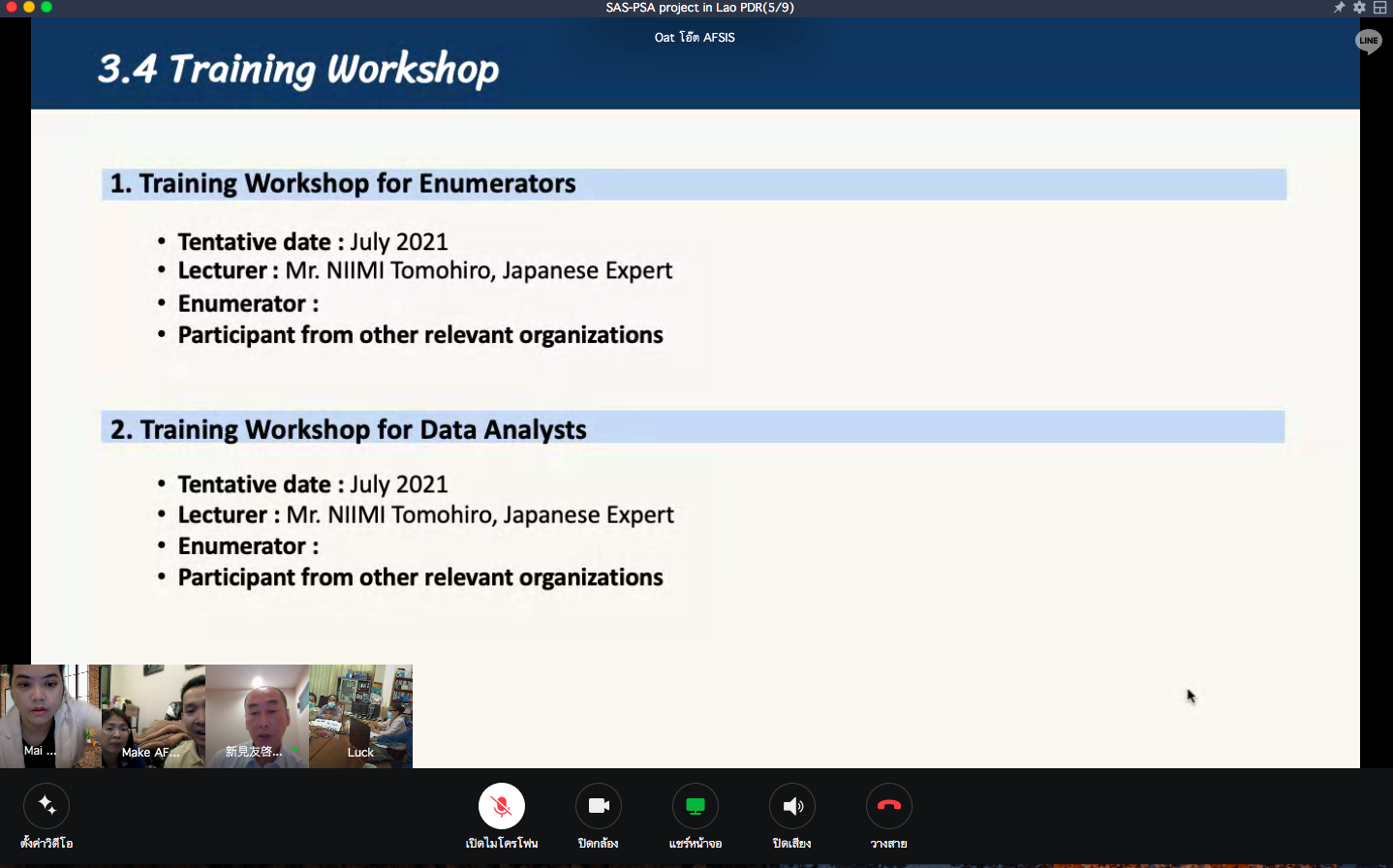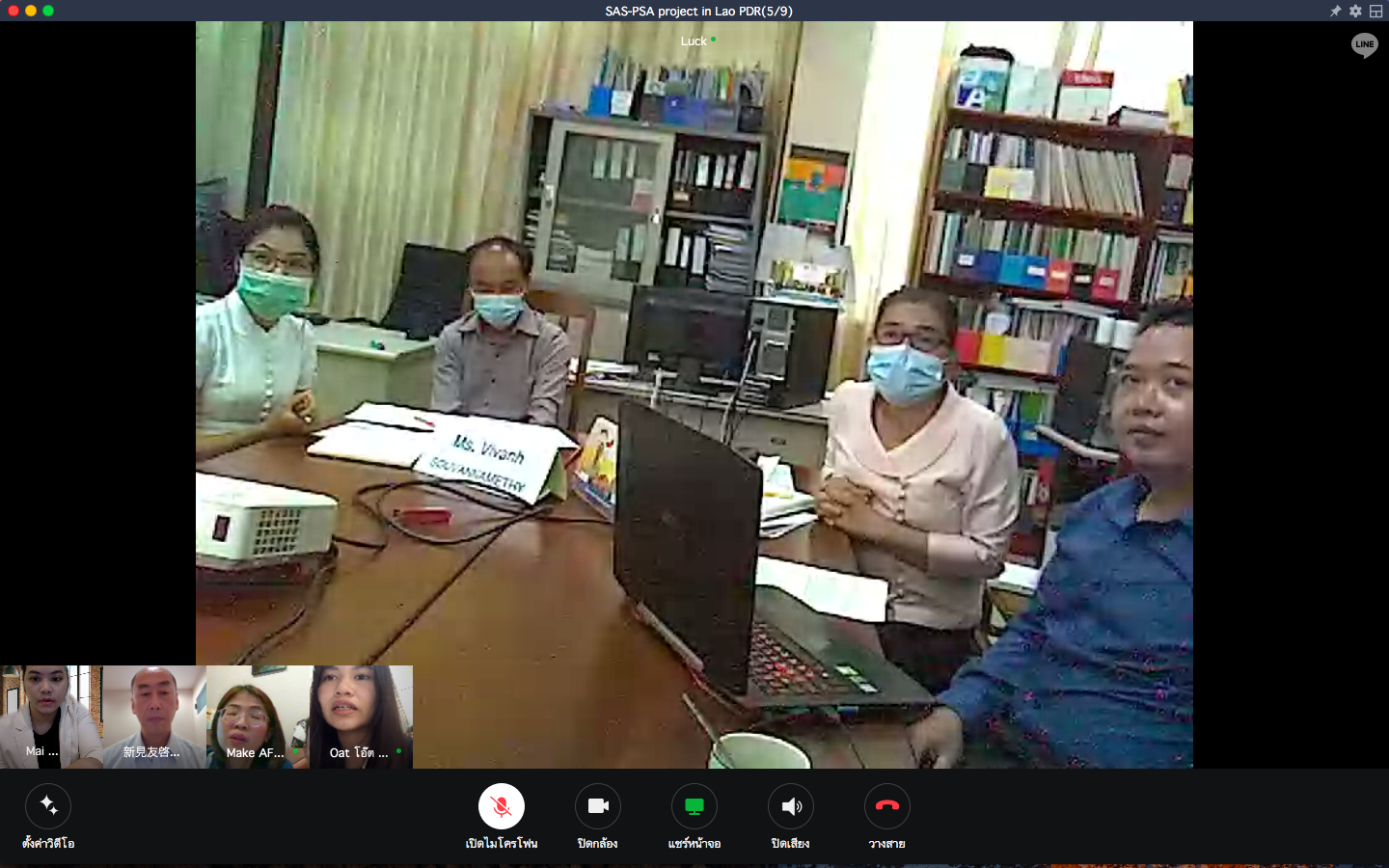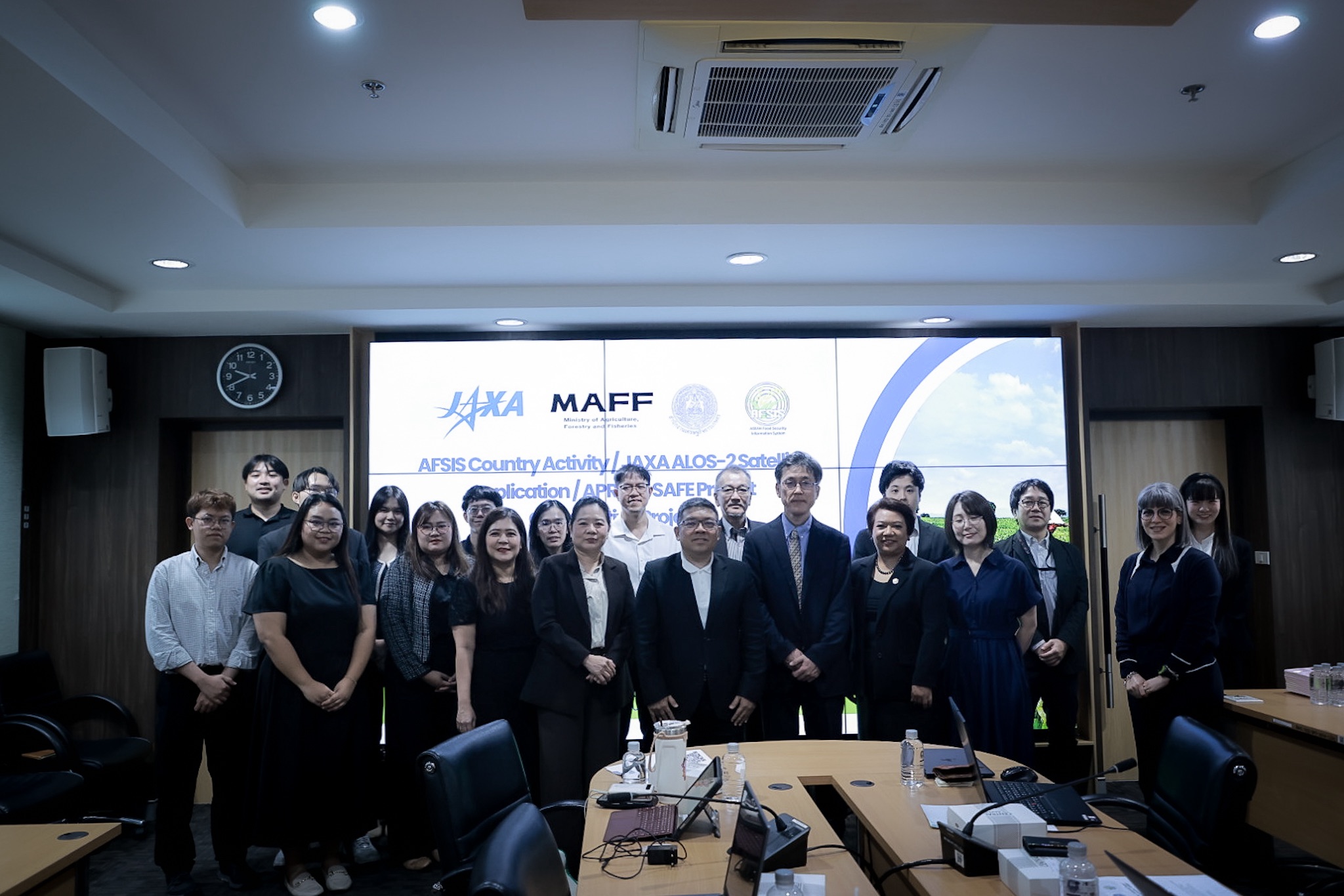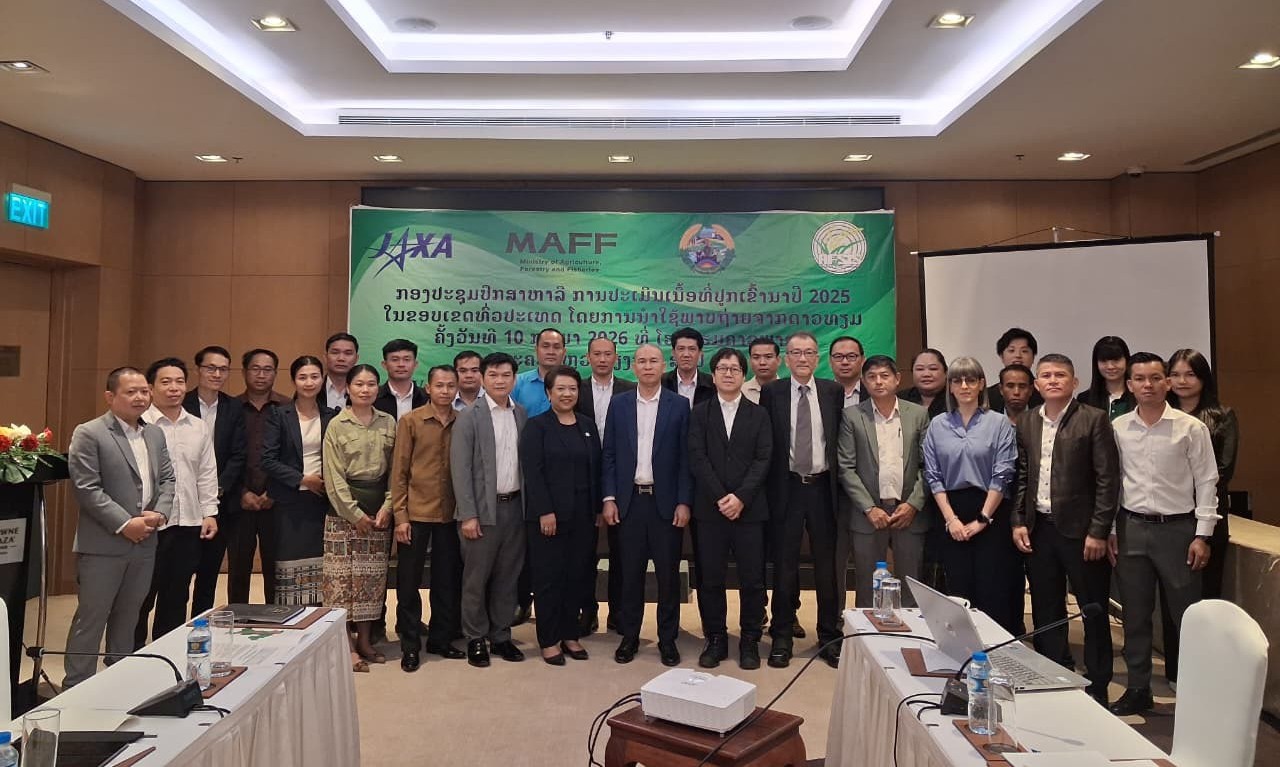
On 13 May 2021, the 1st meeting of Project for Supporting Agricultural Survey on Promoting Sustainable Agriculture in ASEAN Region (SAS-PSA) for 2nd year project (2021), Lao PDR, had been hold virtually as the video conference.
There are delegates from Center for Agricultural Statistics, Department of Planning and Finance, Ministry of Agriculture and Forestry, Lao People Democratic Republic (CAS) along with AFSIS Secretariat.
This meeting aims to discuss the action plan which will be implemented in Lao PDR and seek for a mutual understanding on the plan details.
During the meeting, CAS has proposed Khammouane province to be the target province for the pilot survey and the number of observations will be at least 200 farmers.
Additionally, CAS together with AFSIS Secretariat are planning to sign the Letter of Agreement (LoA) on 25 May 2021.



On 12-13 February 2026, the AFSIS Secretariat, in collaboration with the Japan Aerospace Exploration Agency (JAXA), the Remote Sensing Technology Center of Japan (RESTEC), Ministry of Agriculture, Forestry and Fisheries (MAFF) Japan and the Office of Agricultural Economics (OAE), Ministry of Agriculture Cooperatives (MOAC), conducted a workshop conducted a workshop The Promoting Rice Planted Area and Production Estimation Using INAHOR and Space-based Technologies in Thailand at the Meeting Room 2, Innovation Building, 3rd FL, Office of Agricultural Economics (OAE)

The In-Country Workshop on Promoting Rice Planted Area and Production Estimation Using Space-based Technologies in Lao PDR was jointly organized by AFSIS Secretariat, JAXA, MAFF Japan, and MAE Lao PDR under the AFSIS-GIS and SAFE projects. The event was held in Vientiane with hands-on training on 9 February 2026 and a workshop on 10 February 2026.
.jpg)
On 13–15 January 2026, the Office of Agricultural Economics (OAE), Thailand, in collaboration with the Ministry of Agriculture, Forestry and Fisheries (MAFF), Japan, and the AFSIS Secretariat, conducted the 1st Meeting of Japan–Thailand Expert Dialogue on Agricultural Statistics. The meeting was held at the Office of Agricultural Economics and field survey activities in Chonburi Province.

On 3–4 December 2025, the ASEAN Food Security Information System (AFSIS) Secretariat participated in the ASEAN Plus Three Emergency Rice Reserve (APTERR) Table Top Exercise (TTX) held in Bandar Seri Begawan, Brunei Darussalam.